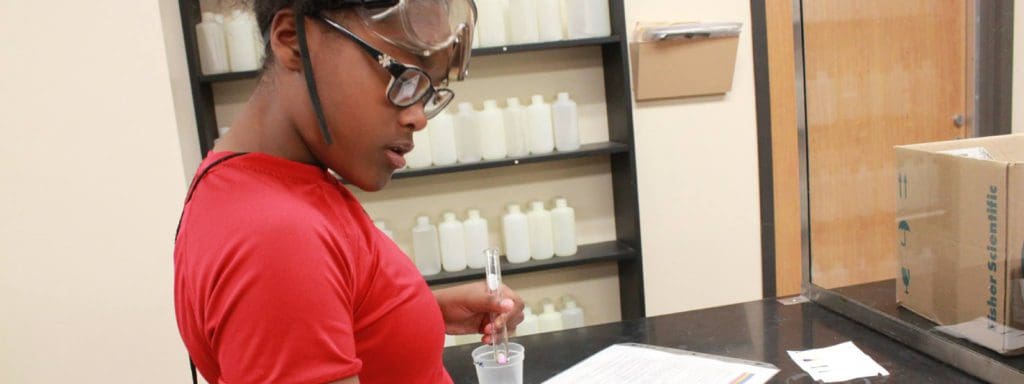The following is a guest blog post from Stephanie J. Hull, president and CEO of Independent Sector Member, Girls Inc.
The intensity of the renewed national outcries for racial equity and justice that have followed George Floyd’s murder has shocked millions of Americans. It shouldn’t. These problems have been intransigent, and it is well past time we addressed them. Although violence has never solved violence, peaceful protest is still a powerful way to make a point. If we as a nation have been shaken out of complacency and moved to act, then that is a good and reasonable outcome.
It is also good and reasonable that there is an outpouring of support for social justice organizations. Understanding racism and injustice, learning about advocacy, and engaging in community action are all crucial right now. Perhaps now is the moment, long overdue, when such efforts will gain traction.
However, such well-intentioned attempts to focus on a way forward also have a downside: In the quest to target resources to address inequity at its root, thought leaders and funders risk pigeonholing the communities they intend to support. If an organization, for instance, decides to commit its entire corporate social responsibility program or its entire endowment draw to programming about equity, it will miss a chance to help create equitable opportunity.
To those with the potential to finance a change movement, it may seem tone-deaf right now to support any effort that is not explicitly anti-racist, or not to pivot to direct funding for immediate social justice reform. This is all the more true because so many of the entities and donors with the means to provide major support also feel vulnerable to accusations that they, with their power, could never understand what so many disenfranchised people have been experiencing and feeling. And of course, for that reason, it is powerfully seductive for such players to make funding decisions that show that the funder is on the side of right.
Make no mistake: There is a crying and urgent need to confront inequity and injustice head on. Our house is on fire, we’ve already waited too long, and it could well burn out of control. It makes no sense to decorate around the burnt rooms; we need to put the fire out and work seriously toward permanent fire prevention. Of this, there is no question.
But part of the prevention, healing, and justice that Black America needs is a broader focus on true pathways to access and opportunity, not just access to what those in power think is best. Demonstrably, what those in power have thought best has not gotten the nation very far, even after a half-century or more of explicit efforts.
What does a socially just world look like for the young people currently on the frontlines calling out inequity and leading efforts to create a more equitable and just country? Helping them achieve parity and power in the various areas of their lives requires that we not only advance their best interests, but that we make it a point to understand their interests. If, under the current harsh spotlight, funders are not willing to listen to the Black community explain what its young people need, then we are destined simply to repeat the old cycle.
So, yes, young people need to understand the history of racism. But they also need to understand the history of many nations and how our lives and histories are interconnected with those of other people. They need to be exposed to science, math, engineering, and technology—they need to read and write, make art and music, dance and participate in sports. We know Black children, particularly those from under-resourced communities, experience significant barriers to accessing high-quality, diversified, and advanced learning opportunities. If they are to reach their fullest potential, we must break down those barriers, with them and for them.
While the requirement for equity in these and other pursuits may not seem as urgent or appealing to funders as the immediate need for understanding, dialogue, and collaboration, it is just as essential to our next generation as the social justice correctives that we also need. For this reason, corporations and philanthropies looking to support young people of color in this season of upheaval must remember not only to provide resources for the short-term need, but also for the long-term cultivation of Black leadership.
When young people have equal access to educational and leadership opportunities, a new world of possibility opens up. They uncover interests and strengths, and are inspired and supported to forge their own path. When all our young people are given the support to learn and develop themselves freely and safely, they will emerge as scientists or activists or authors. Their contributions to the nation’s future prosperity will be wide-ranging, and their leadership and innovation will be essential. We don’t need to pre-program them. If we let the need to make ourselves feel responsive cloud our vision of the need for investments in young people’s future, we are taking away their freedom.
Lack of access to quality education as a result of systemic poverty or racial inequity is oppressive. But if we provide access in too targeted a way, or assume that anti-racist programming is what young people most need to the exclusion of other opportunities, we are also oppressing them—in the most painfully well-intentioned of ways.
And this is why oppression is insidious and systemic. You don’t have to mean to deny children full opportunity in order to create that outcome. But now is the time to break that cycle, too. As funders consider how best to support equity efforts, investment in quality education for young people in underserved communities is essential. Educating and equipping a new generation of diverse leaders—preparing them to contribute meaningfully in all areas and sectors of society and culture—is critical to advancing justice and equity in this nation.
Stephanie J. Hull, Ph.D., is president and CEO of Girls Inc.



